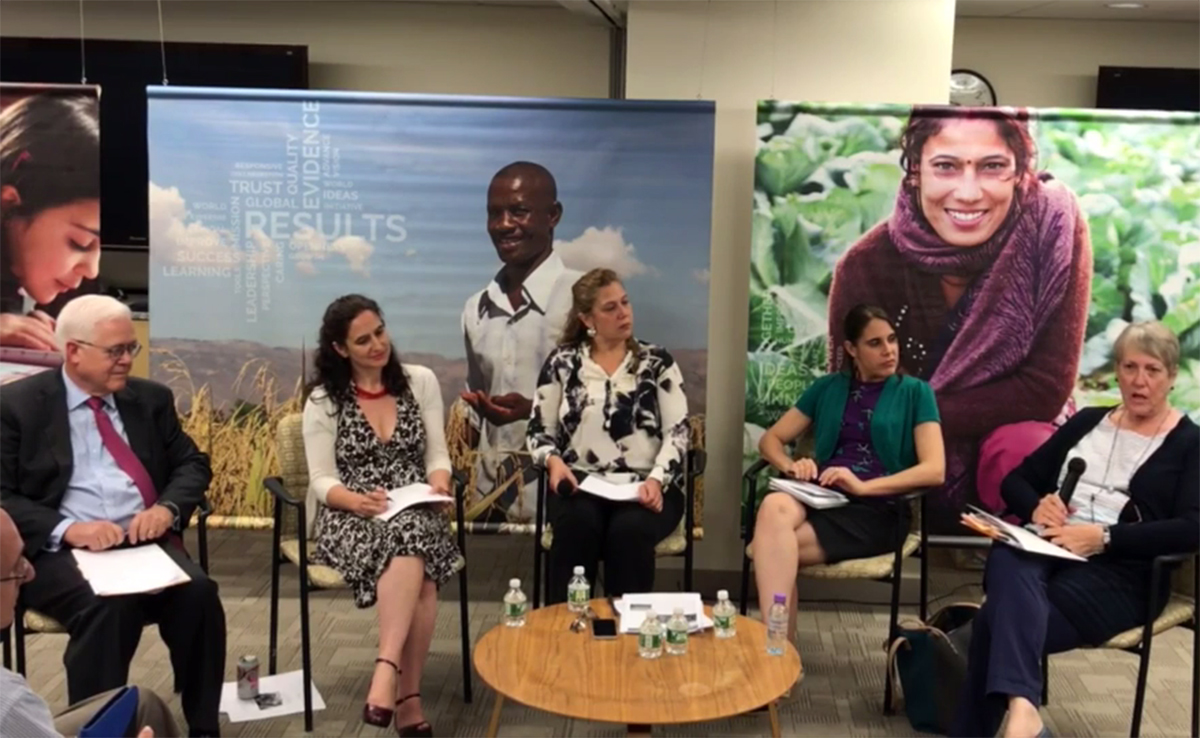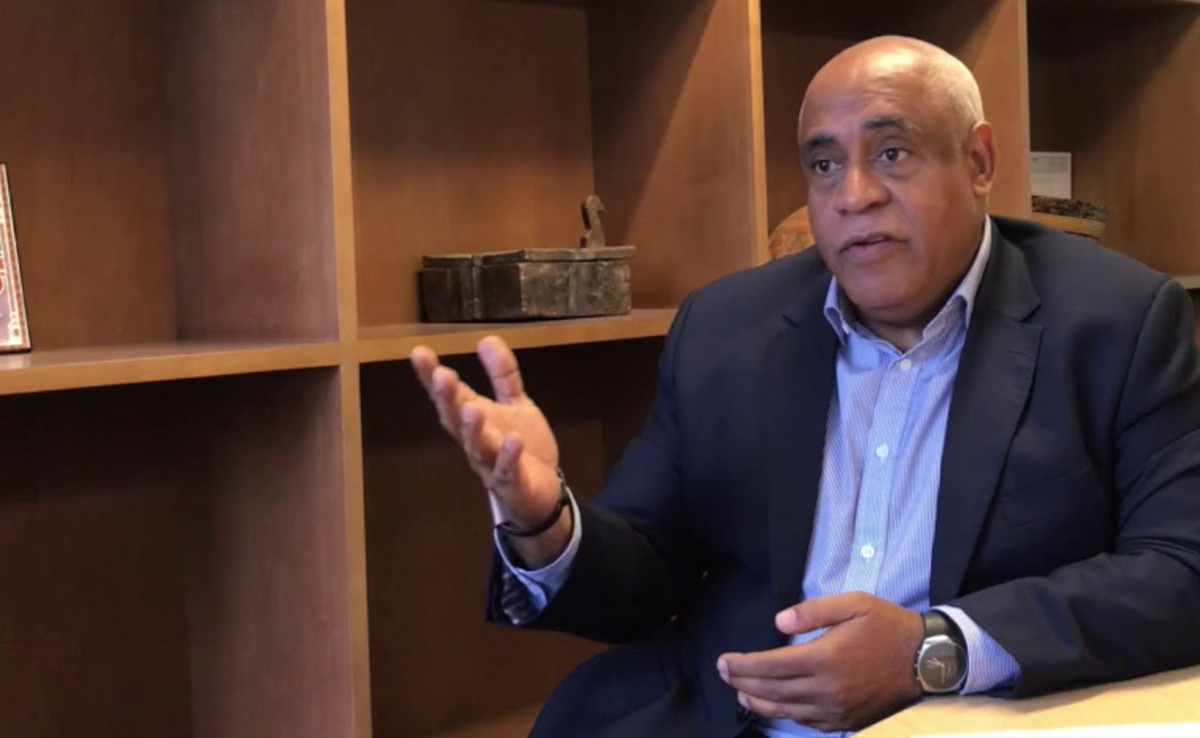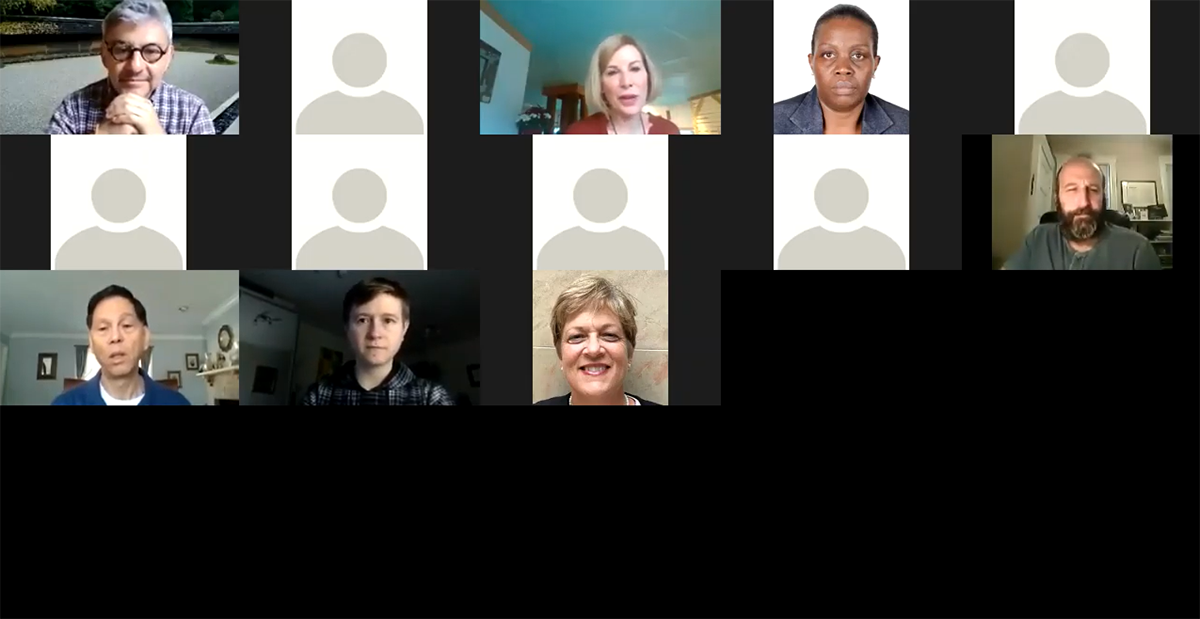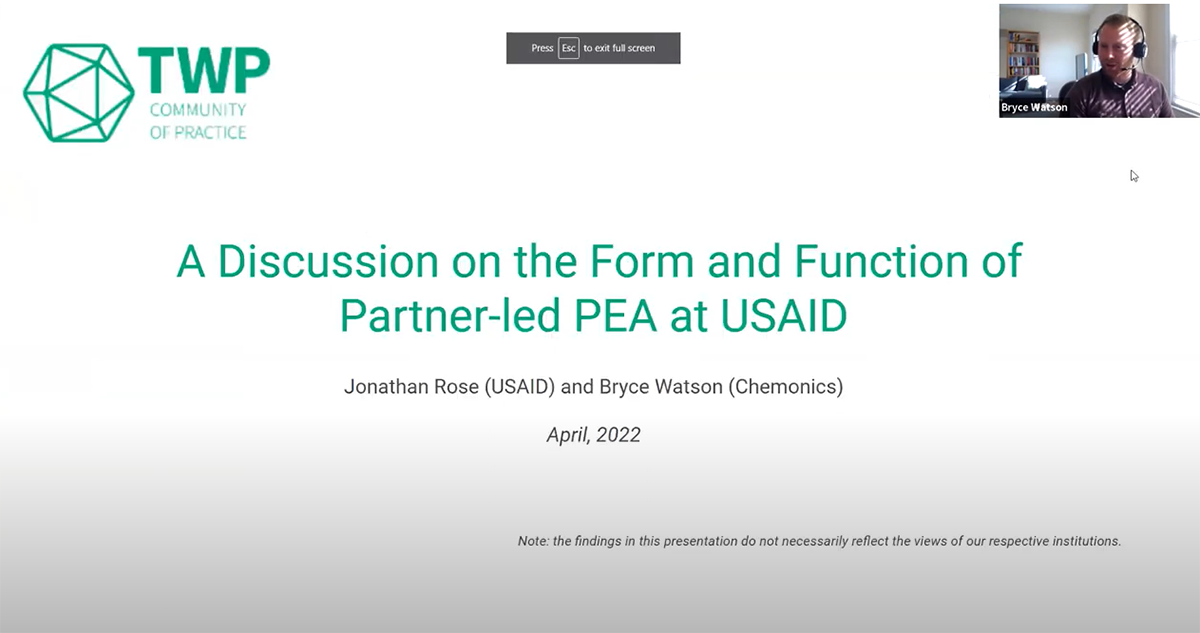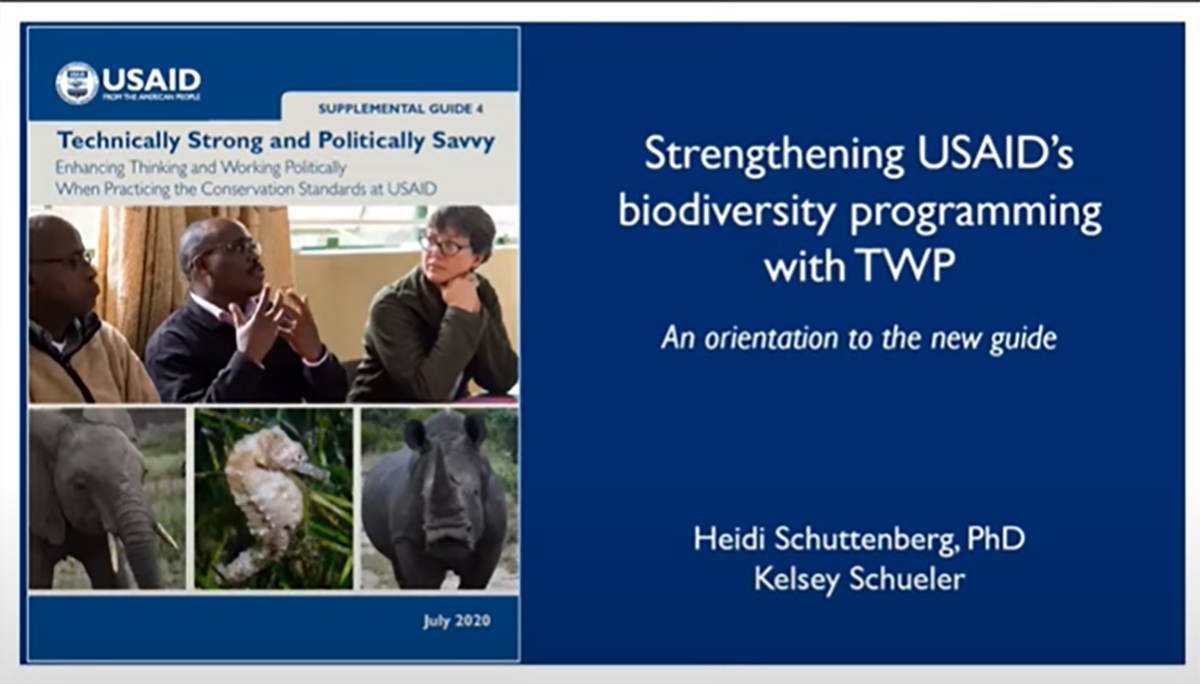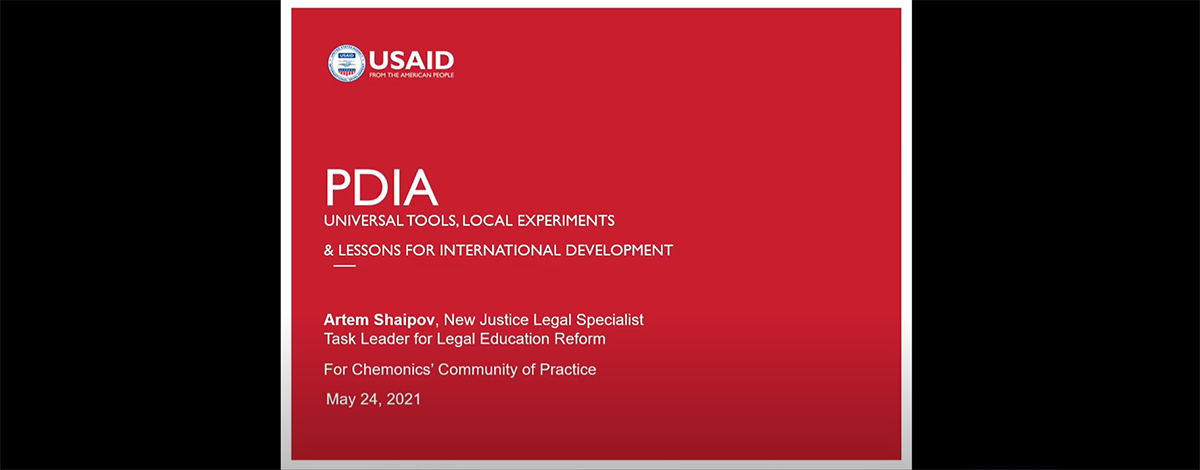Over the past several years, Chemonics International has championed the integration of evidence-based technical solutions with politically savvy approaches grounded in deep contextual analysis to achieve better and more sustainable development outcomes around the world. From Tunisia, to Indonesia, Mexico, Ukraine, and beyond, we have expanded our use of TWP across all sectors with tools including applied political economy analysis (APEA), problem-driven iterative adaptation (PDIA), the actor-based change (ABC) framework grounded in behavior science, scenario planning, strategic foresight, and others to inform smart program designs and drive adaptation through politically-informed collaborating, learning, and adapting (CLA). As a result, our programs have found more effective and localized pathways to achieve the common goals of the countries and communities where we work.
Building on early leadership in TWP and investing in a concerted push to do development differently across the company, Chemonics established the Center for Politically Informed Programming in 2019. The Center drove the development of key internal capacities and resources to enhance our programming worldwide and contributed critical learning, thought leadership, and advocacy to improve development and assistance approaches generally. These efforts have left Chemonics with a roster of staff highly qualified in APEA and TWP more broadly who can mobilize quickly to support effective project implementation. Below, we highlight some of the most important work Chemonics has conducted over the past five years to identify and anticipate key political economy factors in the local systems where we work; promote collective action, motivation, and other strategies to navigate challenges and incentivize positive change; and ultimately promote better, locally-led development impact.
Leadership for a Community of Practice to Improve Development through TWP
Chemonics was an original co-founder of the global TWP Community of Practice’s Washington DC Working Group, which now includes a steering committee with representatives from 13 development organizations and a following of over 180 development practitioners across sectors and regions. The group has co-organized numerous events with USAID and FCDO, reaching hundreds of attendees to learn from the experiences across organizations and continents and continue to lead the industry’s approach to TWP for greater, more sustainable development impact. Chemonics also led research efforts with USAID and the TWP Working Group to analyze over 200 activity solicitations and interview over 50 USAID Contract Officer Representatives and activity chiefs of party to understand the commissioning and practical use of PEAs, and conditions for the enabling environment for more effective TWP (and thus create more impact).
Applied Political Economy Analyses that Drive Impact
A key component of our own practice of TWP has been applied analysis at large scale. From 2017 to 2022, Chemonics conducted 21 APEA studies across 16 countries that have helped programs more adeptly maneuver their complex political environments and drive impact through innovative strategies and coalitions identified through this analysis. Through systematic learning exercises, we have collected lessons from these experiences to stay at the forefront of best practices in adaptive APEA design and implementation – identifying ways to best identify key drivers of change, main risks, foresight of possible scenarios and resulting strategies, and ongoing contextual scans and infusion into continuous adaptation. And we have done this in the most difficult circumstances, including conflict areas and seven times during the COVID-19 pandemic. These APEAs assessed prior interventions, identified the political and social reasons why things function as they do, recognized complex interests among local system actors facing both benefits and drawbacks of reform, mapped the relationships and relative influence of different actors to support or oppose reform, and identified incentives and potential new windows of opportunity to drive change.
Innovations in Thinking — and Working — Politically
APEAs are an important tool for thinking politically, but it has often been challenging in the development community to connect thinking politically to working politically. In the last five years, Chemonics has experimented with innovative tools and approaches to bridge this gap for greater positive impact. These innovations have included integrating social and behavior change approaches, youth empowerment, and strategic foresight and scenario mapping, leading to significant enhancements in program strategy and decision-making.


